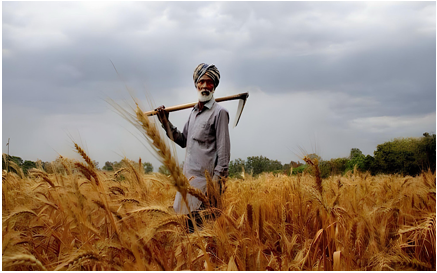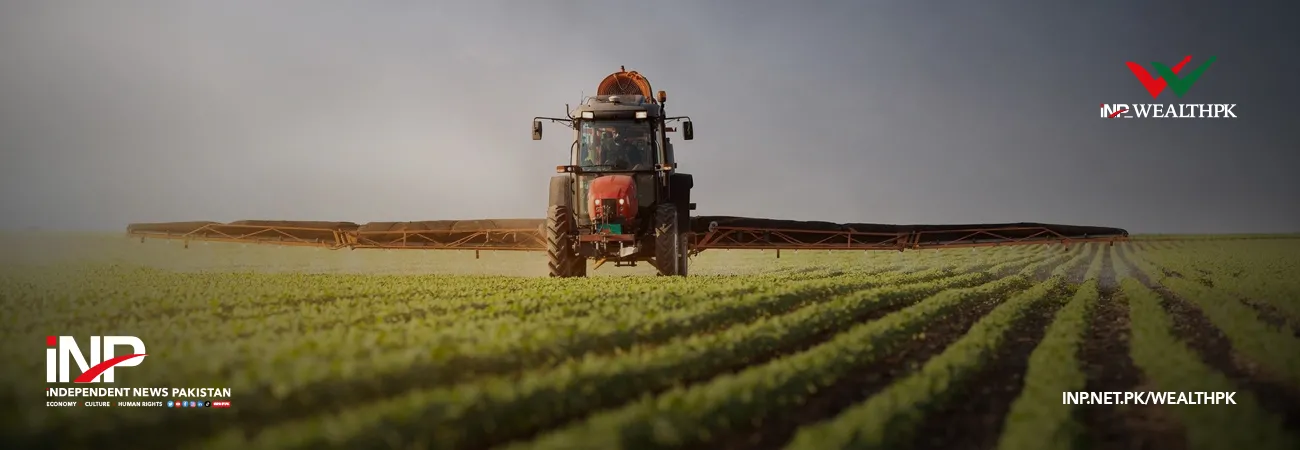INP-WealthPk
Ahmed Khan Malik
Sindh’s small farmers seek government's support to adopt new techniques for increased crop productivity, reports WealthPK.

Sindh is home to thousands of small-scale farmers who form the backbone of the region’s food production. However, they face mounting challenges due to climate change, outdated farming methods, water scarcity, and rising input costs. To overcome these issues and improve productivity, small farmers urge the government to help them adopt modern agricultural techniques. Agriculture contributes significantly to Sindh’s economy, employing a large percentage of the population, especially in rural areas.
Small farmers typically cultivate crops like wheat, rice, cotton, sugarcane, and vegetables. However, many still rely on traditional farming practices passed down through generations, which are no longer effective in the face of changing environmental and economic conditions. One of the major problems faced by farmers is water mismanagement.
With water resources becoming increasingly scarce, outdated irrigation methods such as flood irrigation lead to wastage and poor crop yields, said Atta Rajar, Secretary of the Farmers Forum in Hyderabad, told WealthPK. “Newer techniques like drip irrigation, laser land leveling, and moisture sensors can help conserve water and boost productivity. Yet, these technologies remain out of reach for most small farmers due to high costs and lack of technical knowledge.
“Similarly, the use of certified seeds, modern fertilizers, integrated pest management, and precision farming tools can significantly improve output and reduce losses. But without adequate training, access to credit, and infrastructure support, small farmers are unable to benefit from these advancements,” Rajar said. “We are willing to learn and try new methods, but we need help from the government,” said Ghulam Nabi, a farmer from Khairpur.
“We cannot afford the equipment or the risk if the new techniques fail. Training programs and subsidies would make a big difference.” Agricultural extension services, which are meant to bridge this gap by providing farmers with the latest information and techniques, are weak or absent in many parts of rural Sindh. Strengthening these services can play a vital role in knowledge transfer and capacity building.
Experts argue that government policies must prioritize smallholder farmers by offering targeted subsidies, low-interest loans, and technical assistance. Investment in rural infrastructure—such as roads, storage facilities, and marketplaces—is also essential to ensure that farmers can sell their produce at fair prices.
Non-governmental organizations (NGOs) and the private sector can also play a supportive role, but widespread change will require a coordinated approach led by government agencies, said Liaquat Nizamani, a researcher at the Agriculture University, Tando Adam, while talking to WealthPK.
He noted that pilot programs could help build trust among farmers in the effectiveness of modern techniques and demonstrate the tangible benefits of innovation. “If the government takes timely and focused action, small farmers can transform their operations, increase incomes, and contribute more effectively to national food security.
Without such support, however, many risk falling further behind, unable to cope with the evolving demands of modern agriculture,” he said. Nizamani believes that empowering small farmers through access to new agricultural technologies and techniques is not just a necessity, but a vital investment in the future of the rural economy.
Credit: INP-WealthPk




